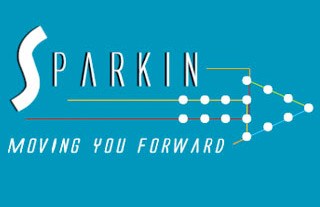Being A Good Boss
People don’t quit their jobs, they quit their bosses. And usually when they cease to see a path for progression or growth for which a good boss is instrumental.
This edition of Narrate is about managing and being managed.
A great manager can make a huge difference to both your day-to-day experience as well as your long-term prospects, but a great manager is not automatic. Most managers lack training or formal guidance for the managerial role. Of course, a bad manager is awful.
“Nine times out of ten, when an employee says they’re leaving for more money, it’s simply not true. It’s just too uncomfortable to tell the truth.”
(Alison McMahon)
So how do we get better at this? Fortunately, there’s great material here. The attached links are aimed at making the task of managing a tad easier and being managed, a little more effective. If nothing else, a shared article might facilitate a conversation that needed to happen.
Enjoy!
Stuart
So What Makes a ‘trusted advisor?’
18 Executives Share Their Secrets To Being A Great Boss
5 Simple Ways To Be A Good Boss No Matter How Busy You Are
7 Leadership Style The Best Bosses Use
Want To Be A Good Boss? Start By Understanding Why You Want To Lead
Good Bosses Switch Between Two Leadership Styles
How To Be A Great Millennial Boss
14 Signs Your Employees Secretly Hate You
12 Things Not To Say Or Do Around Your Boss
Standout by Getting Your Employer Working For You Copy
Whilst working at your current agency you should consciously pursue experience, education and connections that enhance your distinctiveness as a business problem solver. You should do what you are paid to do (help optimize the agency of which you are part) but also remember that not also leveraging the agency to build your own value, is a wasted opportunity.
Don’t Regret What Was
It’s only once you cease to work for an agency that you appreciate the many things that provides, some obvious and some less so:
A job;A Team; Resources, (financial/creative); Access; Training; Experience; Exposure.
Your working in an agency can be great for the agency’s and its clients business. It should also be a positive step for your career growth.
The Connection between Great Work and Your Success
Does a happy client and grateful agency means you will have an optimized fast tracked career? Perhaps.
If you have are known for being an active team player, a proactive individual that helps to resolve client challenges and optimize opportunities, does this mean you will have a fast-tracked career. Perhaps
Is your reputation for effectiveness and are the career opportunities afforded you directly linked. Perhaps
Why a great contribution Doesn’t Always Mean That You Benefit
For instance. If the agency loves the way you keep one client happy they may well be reluctant to move you to other accounts. Or, put another way, an agency whose priorities and timeline that differ to yours may prioritize training, work, performance and metrics that do not fairly reconcile your contribution, strengths or priorities; Or, you deliver but others claim the credit.
Delivering Consistently Means (In the absence of conscious career management)
If you do deliver consistently and others notice, you should survive (but don’t always).
If you are noticed you might not necessarily be rewarded at all or proportionately or in the way you might want to be.
Delivering tangible metrics yet without a career advocate, throws the recognition and aligned progression you deserve in to question.
Putting Your Employer to Work for You – How?
Accept responsibility for your career progression.
Always have an idea how you want to grow next even if you don’t know what you want your next challenge to be.
Have your own ‘purpose’ and pursue it, even if you don’t believe in the purpose of your employer, or its clients.
Ideally, anticipate what your next career step will be. The clearer you are about this the better able you will be to start harnessing the experience, knowledge and connections you will need to make you a shoe-in for the next role.
Standout by Getting Your Employer Working For You
Whilst working at your current agency you should consciously pursue experience, education and connections that enhance your distinctiveness as a business problem solver. You should do what you are paid to do (help optimize the agency of which you are part) but also remember that not also leveraging the agency to build your own value, is a wasted opportunity.
Don’t Regret What Was
It’s only once you cease to work for an agency that you appreciate the many things that provides, some obvious and some less so:
A job;A Team; Resources, (financial/creative); Access; Training; Experience; Exposure.
Your working in an agency can be great for the agency’s and its clients business. It should also be a positive step for your career growth.
The Connection between Great Work and Your Success
Does a happy client and grateful agency means you will have an optimized fast tracked career? Perhaps.
If you have are known for being an active team player, a proactive individual that helps to resolve client challenges and optimize opportunities, does this mean you will have a fast-tracked career. Perhaps
Is your reputation for effectiveness and are the career opportunities afforded you directly linked. Perhaps
Why a great contribution Doesn’t Always Mean That You Benefit
For instance. If the agency loves the way you keep one client happy they may well be reluctant to move you to other accounts. Or, put another way, an agency whose priorities and timeline that differ to yours may prioritize training, work, performance and metrics that do not fairly reconcile your contribution, strengths or priorities; Or, you deliver but others claim the credit.
Delivering Consistently Means (In the absence of conscious career management)
If you do deliver consistently and others notice, you should survive (but don’t always).
If you are noticed you might not necessarily be rewarded at all or proportionately or in the way you might want to be.
Delivering tangible metrics yet without a career advocate, throws the recognition and aligned progression you deserve in to question.
Putting Your Employer to Work for You – How?
Accept responsibility for your career progression.
Always have an idea how you want to grow next even if you don’t know what you want your next challenge to be.
Have your own ‘purpose’ and pursue it, even if you don’t believe in the purpose of your employer, or its clients.
Ideally, anticipate what your next career step will be. The clearer you are about this the better able you will be to start harnessing the experience, knowledge and connections you will need to make you a shoe-in for the next role.
Attaining Trusted Advisor Status
Each year, unfortunately around Thanksgiving and as the end of the financial year approaches, many agencies prune their ranks. One way to bolster your job security? Pursue trusted advisor status. But what does it take to attain it?
IPA Effective work? Cannes awarded creativity? Making your client a success story? Some argue that you give the client what they want. Or is it what they don’t know they want? Either way, they have to trust you. They need to believe that what you recommend has their best interests at heart and not simply your agency’s bottom line. Who is best able to deliver on this promise?
The brilliant communicators? The great listeners? The connectors of the disparate? Of course, all the above but as with a great meal, great ingredients are not enough. How and in what order you combine them is key.
The attached links provide some expert views on how to bolster your position at this vulnerable time of the year.
Enjoy!
Stuart
So What Makes a ‘trusted advisor?’
- Trusted Advisor Marketing: Why You’re Asking the Wrong Questions?
- Scaling Trust: Marketing on a New Key
- Selling Strategies: How to Become a Trusted Advisor to the C Suite
- Trusted authority or Trusted Advisor – What and Why?
- 9 Traits of a Trusted Advisor
- Virtues of a Trusted Advisor
- Five Tips For Creating Relationships That Drive Sales
Agency Vs. Client-Side Planning
Companies that no longer work with outside marketing agencies continue to rise, reaching 27%, up from 13% a few years ago.
Do agencies really fail to provide sufficient value? Look closer and significant trends are at play. Certainly, some of the larger agencies are too slow and seemingly entrenched with traditional media. Clients that want to be faster moving can sometimes find speed by keeping/bringing things in-house.
More telling, the type of work being conducted client-side is changing, with a preference for strategy being pulled back in-house. Clients certainly seem to be hiring more strategic problem solvers from the consulting side of the business. There appears to be a recognition, in large part because of the importance of data, that the strategic conversation is something they really should stop outsourcing and better still, actively develop in-house. This in turn requires a re-tooling of talent.
From your perspective, agency or client, big brand picture or activation focus, how do you see things playing out? Hoping some of the attached reading clarifies things for you.
Enjoy!
Stuart
Articles and commentary that might be of interest…
- 6 Reasons Marketing is Moving In-House
- How Agencies Are Wooing Ex-staffers To Return
- Agency Versus Client-side. Is The Grass Greener?
- Working For A Marketing Agency Vs. Client-side Marketer
- Agency-side Vs. Client-side. Should You Make The Switch?
- Chapter 1 How To Choose The Launch Pad For Your Career In Marketing
- Shifting From The Client-side To The Agency-side –Is It Really ‘The Dark Side’?
- Three Top Marketers With Agency Backgrounds Reveal Why They Switched Roles
- Client-side Vs. Agency-side
- Living On The Other Side Of Moving From Client To Agency
- How To Retain Top Agency Talent
How to positively manage the effects of sudden changes in a new job
I regularly receive calls that talk to an individual having started a new job and a few months in, it is unrecognizable from expectations, not simply because of a changed challenge but in terms of what was promised about people, the value of their expertise in the agency/company, the culture, resources, leadership and clients. The boss that hired you leaves, the client it turns out is completely unreasonable and/or not embracing the value your expertise can bring and/or, the function you represent period, for example strategic planning. And, the department of which you are a part, doesn’t seem to have any practical leadership. These are just a few examples of challenges I’ve heard someone newly employed describe to me as they asked what they should do.
Now, it’s true, situations in the agency and business world can and do change very quickly. The role you were hired for can become manifestly different. Where you confront such a situation in a new role (1-3 months) you should ask yourself the following three questions:
Is the change significant enough that you believe you cannot be effective in the new role?
Can you through discussion alter the changed circumstances so that you can be effective?
Is there an opportunity for professional progression/a chance to develop your expertise even with the changed circumstances?
If the answer to all the above questions is “no,’ you should leave the role. If you take no action you are very likely going to go around in circles as you fail to direct your career. A better approach, whether you leave depends on rationalizing a course of action based in my opinion, on three factors: Your sanity; Your reputation; Your resume.
Sanity
More important than your reputation or resume is your state of mental health. Being in a situation for which you are unprepared, unsuited or simply don’t desire can adversely affect your mental state of mind. Extreme stress arises due to a complete lack of support or from a role or circumstances significantly different from those you believed you were being hired for. In such a situation if you cannot, even after talking with someone you trust, get clarity or assurance that the job you are being asked to perform will, in some timeframe align with that that you were hired for, then you should seriously consider leaving the agency.
Reputation
Whenever you are delivering a product or service you have been paid to deliver, the consistency and quality of that delivery is what your reputation is in large part based. Clearly other people’s perception of you are based on other factors too significantly, being seen to be easy to work with/cultural fit. A positive/can do attitude is the ally of a great reputation but even that is not enough if the quality and consistency of your work is not up to par. So whenever there are persistent factors that are out of your control and you cannot resolve, that will materially affect the consistent quality of your work, that would also be a reason either to change your current role with your current employer or to leave. Your reputation takes time to build but it can be damaged very quickly. You cannot afford to persist with anything that damages your ability to be the best you can be.
Resume
I’m often asked, even when an individual is unhappy and is struggling in their new role, ‘Should I stay another six months?’ I’m being asked this question even though there are no obvious concerns about mental health or loss of reputation that is, they can do the job but they are not happy or motivated by it. They are considering leaving their job but hesitating because of how this might look on their resume, their leaving a job after a short period of time. Clearly, if you have left your last two jobs within six months it becomes more important to prove you can commit. The question also arises whether the individual is simply ‘unlucky’ in their job selection or failing to properly qualify the jobs they are subsequently accepting. Irrespective, if what’s at stake is your state of mental health or reputation for delivering great work, these are compelling reasons for change, irrespective of how your resume looks.









